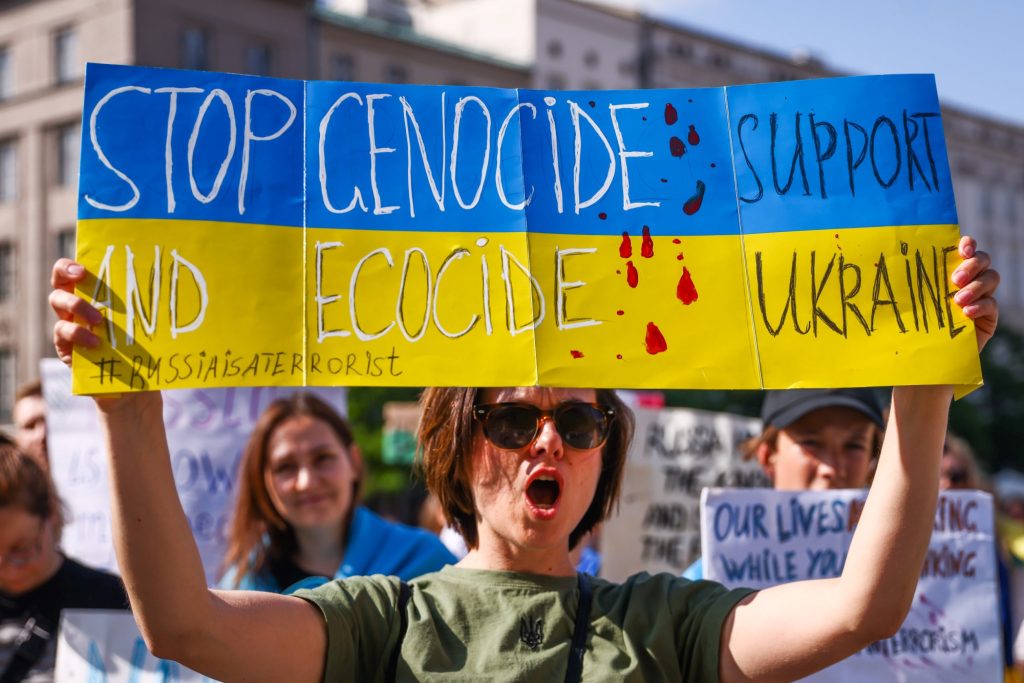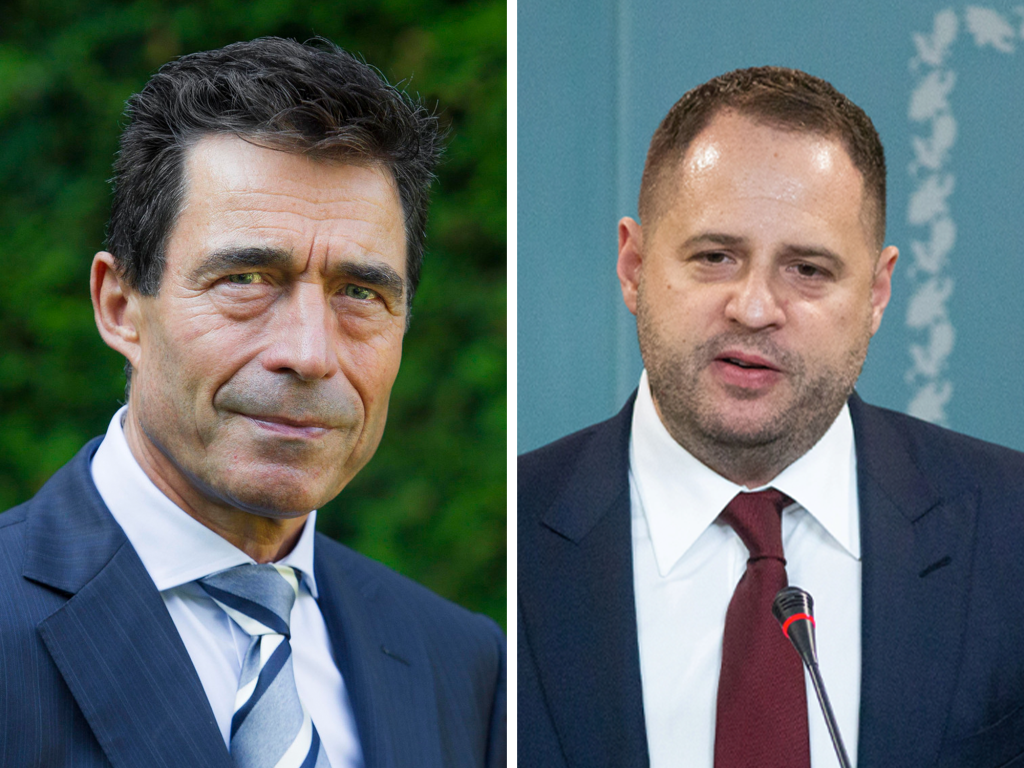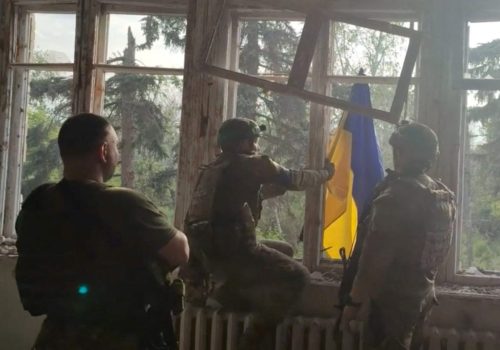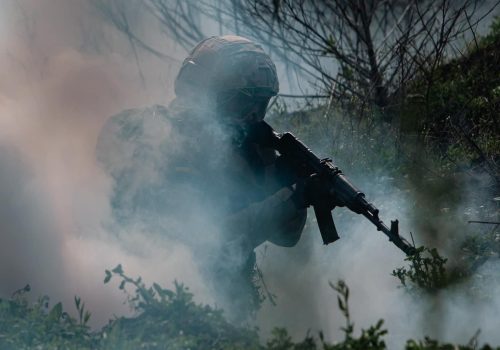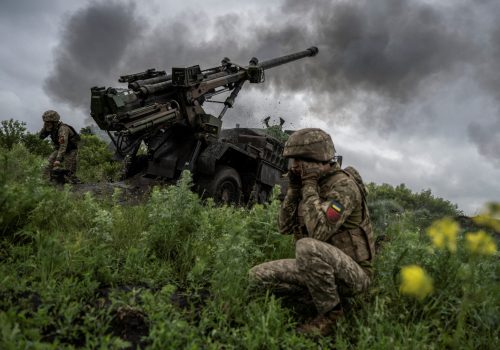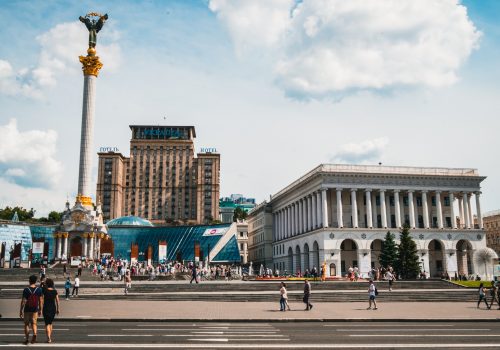
Beyond the counteroffensive: 84% of Ukrainians are ready for a long war

As Ukraine’s long awaited counteroffensive gets underway, a new survey has found that the overwhelming majority of Ukrainians are ready to continue the war beyond the summer campaign if necessary in order to complete the liberation of the country. The poll, conducted in late May and early June by the Kyiv International Institute of Sociology (KIIS), found that 84% of Ukrainians opposed making any territorial concessions to Russia, even if this means prolonging the war.
In line with other surveys of public opinion in wartime Ukraine, the KIIS poll identified strikingly similar attitudes across the country, with 75% of respondents in eastern Ukraine ruling out any territorial concessions compared to 84% in central Ukraine and 86% in both the south and west. This illustrates the unifying impact the Russian invasion has had on Ukrainian public opinion, and underlines the significance of the ongoing war as a major milestone in modern Ukraine’s nation-building journey.
Until very recently, international media coverage of Ukraine often depicted the country as deeply divided between pro-Russian east and pro-European west. This was always an oversimplification and is now clearly no longer the case. Instead, attitudes toward key issues such as the war with Russia and membership of NATO have converged, with strong support for Euro-Atlantic integration evident in every region of Ukraine. Meanwhile, pro-Russian sentiment has plummeted to record lows, especially in the predominantly Russian-speaking regions of southern and eastern Ukraine that have witnessed the worst of the fighting.
Subscribe to UkraineAlert
As the world watches the Russian invasion of Ukraine unfold, UkraineAlert delivers the best Atlantic Council expert insight and analysis on Ukraine twice a week directly to your inbox.
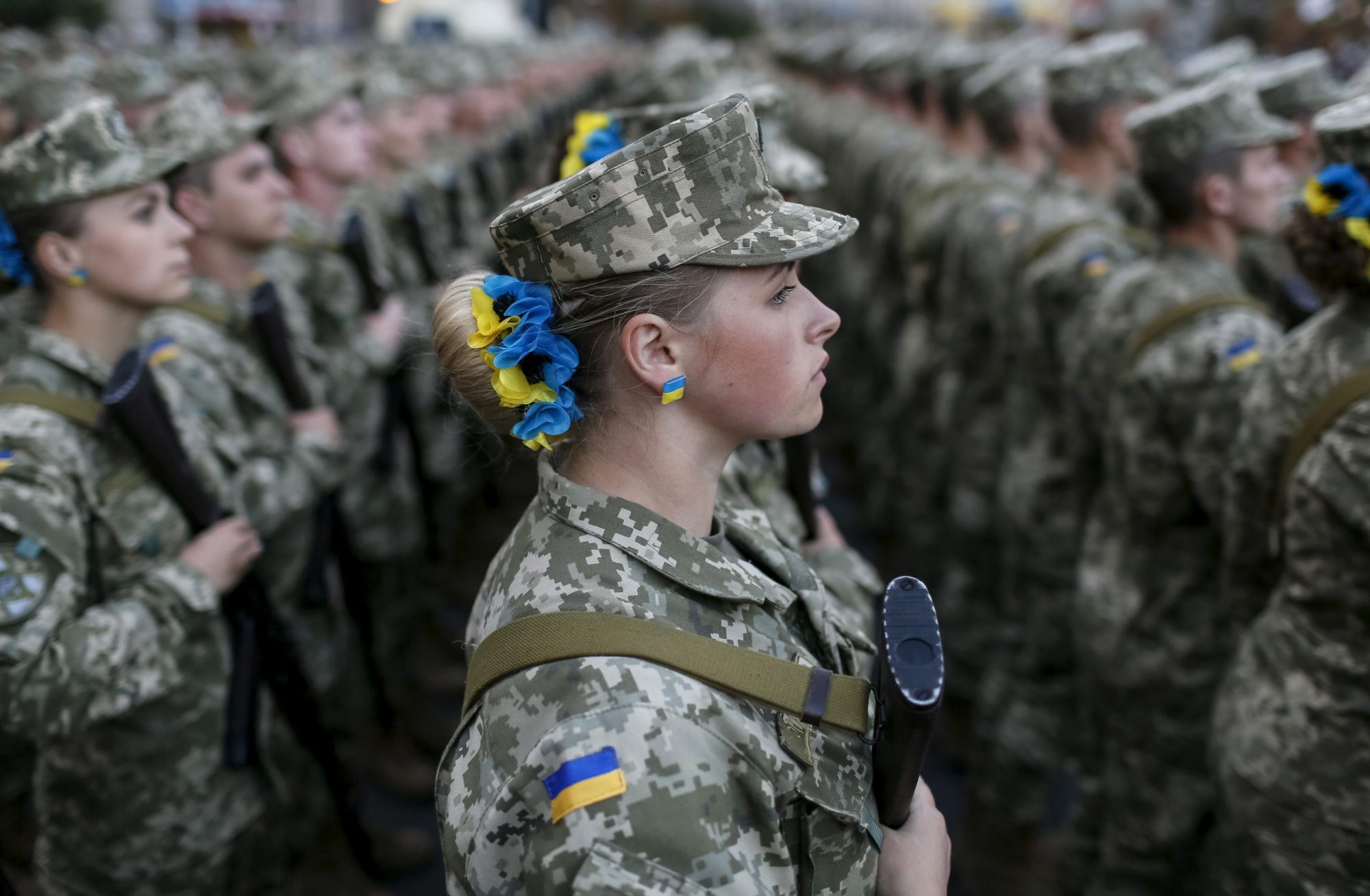
-
-
-
This field is for validation purposes and should be left unchanged.
This latest poll is an important data point that confirms Ukrainian resolve to achieve the complete de-occupation of the country. It also highlights the problems of viewing the current counteroffensive as a make-or-break moment in Ukraine’s war effort.
Some commentators have argued that failure to achieve a major military breakthrough in the coming months would cause a sharp decline in international support for Ukraine and force Kyiv to accept the necessity of some kind of compromise with the Kremlin. In reality, however, the Ukrainian public is staunchly opposed to the kind of land-for-peace deal that would likely form the basis of any negotiated settlement. As long as Ukrainians remain determined to fight on, few Western leaders will be prepared to abandon them.
Ukrainian President Volodymyr Zelenskyy seems to have a good grasp of the public mood in wartime Ukraine. He has consistently stated that Ukraine’s goal is the liberation of all regions currently under Russian occupation. This uncompromising position has attracted some international criticism, with China pushing for the resumption of peace talks and Brazilian President Luiz Inacio Lula da Silva urging Ukraine in April to cede Crimea to Russia in order to end the war.
Ukraine’s Western partners have been far more supportive, providing growing quantities of vital military aid while emphasizing that it is up to Kyiv alone to define what would constitute an acceptable peace. Following some initial hesitation, most Western leaders now also recognize the need for Russia’s invasion to end in a decisive defeat, and acknowledge that anything less would have disastrous consequences for international security.
Eurasia Center events

It is easy to understand why so many Ukrainians reject the idea of striking a deal with Moscow, despite the terrible toll of the war and the inevitability of further trauma.
Perhaps more than anything else, this determination to liberate the whole of Ukraine reflects an acute awareness of the genocidal agenda underpinning Russia’s invasion and the horrors taking place in Russian-occupied regions. Every time the Ukrainian army advances and liberates territory, officials uncover the same grim evidence of war crimes including summary executions, torture, abductions, sexual violence, and mass deportations. For the vast majority of Ukrainians, the idea of condemning millions of their compatriots to this fate is simply unthinkable.
Many in Ukraine are also convinced that attempts to strike a bargain with the Kremlin are both futile and dangerous. Opponents of a compromise settlement note that the current war is no mere border dispute requiring minor territorial concessions, and point to Russia’s increasingly undisguised commitment to extinguishing Ukrainian statehood. They warn that Russian leaders would view any negotiated peace deal as a pause in hostilities, which they would then use to regroup before launching the next stage of the invasion.
Based on Russia’s own actions over the past sixteen months of full-scale war, it is difficult to see how any kind of compromise would prove workable. Putin himself has openly compared his invasion to the eighteenth century imperial conquests of Russian Czar Peter the Great, and in September 2022 announced the annexation of four partially occupied Ukrainian regions representing around 20% of the entire country. If he is not decisively defeated on the battlefield, he will almost certainly seek to go further and attempt to seize more Ukrainian land.
A further factor fueling Ukraine’s commitment to complete de-occupation is the strong desire to free the country once and for all from the historic threat of Russian imperialism. This reflects widespread Ukrainian perceptions of the current war as the latest episode in what is actually a far longer history of imperial aggression that stretches back many hundreds of years.
For centuries, Russian imperial influence has shaped Ukrainian history in ways that have caused untold suffering to generations of Ukrainians while keeping the country trapped in a state of arrested development. Unless Russia is defeated and forced to withdraw entirely from Ukrainian land, this bitter cycle will continue. Ukrainians are under no illusions regarding the high price of victory, but most feel that the price of a premature peace would be far higher, and refuse to pass this burden on to their children and grandchildren. Anyone seeking to end the war without Russian defeat must first reckon with this resolve.
Peter Dickinson is the editor of the Atlantic Council’s UkraineAlert service.
Further reading
The views expressed in UkraineAlert are solely those of the authors and do not necessarily reflect the views of the Atlantic Council, its staff, or its supporters.

The Eurasia Center’s mission is to enhance transatlantic cooperation in promoting stability, democratic values and prosperity in Eurasia, from Eastern Europe and Turkey in the West to the Caucasus, Russia and Central Asia in the East.
Follow us on social media
and support our work
Image: Ukrainian citizens and supporters attend ‘Stop The Ecocide In Ukraine’ demonstration. June 11, 2023. (Photo by Beata Zawrzel/NurPhoto)
